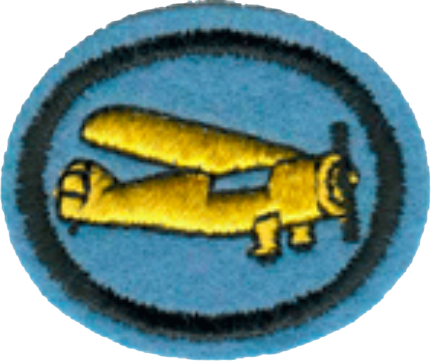Difference between revisions of "AY Honors/Airplane Modeling/Answer Key/uk"
From Pathfinder Wiki
< AY Honors | Airplane ModelingAY Honors/Airplane Modeling/Answer Key/uk
(Created page with "</noinclude>") |
(Created page with "</noinclude> ==Список літератури== <noinclude>") |
||
| (3 intermediate revisions by the same user not shown) | |||
| Line 245: | Line 245: | ||
{{CloseReq}} <!-- 4j --> | {{CloseReq}} <!-- 4j --> | ||
{{ansreq|page={{#titleparts:{{PAGENAME}}|2|1}}|num=4k}} <!--T:100--> | {{ansreq|page={{#titleparts:{{PAGENAME}}|2|1}}|num=4k}} <!--T:100--> | ||
| − | <noinclude> | + | <noinclude></noinclude> |
| − | </noinclude | ||
| − | |||
| − | |||
<noinclude></noinclude> | <noinclude></noinclude> | ||
{{CloseReq}} <!-- 4k --> | {{CloseReq}} <!-- 4k --> | ||
{{ansreq|page={{#titleparts:{{PAGENAME}}|2|1}}|num=4l}} <!--T:101--> | {{ansreq|page={{#titleparts:{{PAGENAME}}|2|1}}|num=4l}} <!--T:101--> | ||
| − | <noinclude> | + | <noinclude></noinclude> |
| − | </noinclude | ||
| − | |||
| − | |||
| − | + | <noinclude></noinclude> | |
| − | <noinclude | ||
| − | |||
{{CloseReq}} <!-- 4l --> | {{CloseReq}} <!-- 4l --> | ||
{{ansreq|page={{#titleparts:{{PAGENAME}}|2|1}}|num=4m}} <!--T:102--> | {{ansreq|page={{#titleparts:{{PAGENAME}}|2|1}}|num=4m}} <!--T:102--> | ||
| − | <noinclude> | + | <noinclude></noinclude> |
| − | </noinclude | ||
| − | |||
| − | |||
| − | + | <noinclude></noinclude> | |
| − | <noinclude | ||
| − | |||
{{CloseReq}} <!-- 4m --> | {{CloseReq}} <!-- 4m --> | ||
{{ansreq|page={{#titleparts:{{PAGENAME}}|2|1}}|num=4n}} <!--T:103--> | {{ansreq|page={{#titleparts:{{PAGENAME}}|2|1}}|num=4n}} <!--T:103--> | ||
| − | <noinclude> | + | <noinclude></noinclude> |
| − | </noinclude | ||
| − | |||
| − | |||
| − | + | <noinclude></noinclude> | |
| − | <noinclude | ||
| − | |||
{{CloseReq}} <!-- 4n --> | {{CloseReq}} <!-- 4n --> | ||
{{ansreq|page={{#titleparts:{{PAGENAME}}|2|1}}|num=4o}} <!--T:104--> | {{ansreq|page={{#titleparts:{{PAGENAME}}|2|1}}|num=4o}} <!--T:104--> | ||
| − | <noinclude> | + | <noinclude></noinclude> |
| − | </noinclude | ||
| − | |||
| − | |||
| − | + | {{clear}} | |
| − | |||
| − | |||
| − | + | {{clear}} | |
| − | |||
| − | |||
| − | + | <noinclude></noinclude> | |
| − | <noinclude | ||
| − | |||
{{CloseReq}} <!-- 4o --> | {{CloseReq}} <!-- 4o --> | ||
{{CloseReq}} <!-- 4 --> | {{CloseReq}} <!-- 4 --> | ||
| − | <noinclude> | + | <noinclude></noinclude> |
| − | </noinclude | + | ==Список літератури== |
| − | == | + | <noinclude></noinclude> |
| − | <noinclude | ||
| − | |||
{{CloseHonorPage}} | {{CloseHonorPage}} | ||
Latest revision as of 18:05, 24 March 2025
1
Постройте и успешно запустите в полет модель планера из набора для постройки планера, сделанного из дерева бальза и тонкой бумаги(кальки или папиросной бумаги), с резиновым или топливным двигателем.
2
Постройте бальзовый планер из набора для постройки планера и понаблюдайте за его летающими характеристиками в зависимости от положения крыльев.
3
Создайте и успешно проведите полет двух различных планеров, используя куски бумаги от 20 до 35 см в длину и ширину.
4
Дайте определение, укажите на модели и объясните назначение следующих терминов:
4b
Крыло
4c
Элерон
4d
Руль направления
4e
Горизонтальный стабилизатор
4f
Pаспорка крыльев
4g
Кабина
4h
Двигатель
4i
Шасси
4j
Пропеллер
4k
Dvogranny
4l
Руль висоти
4m
Тяга літального апарата
4n
Вертикальний стабілізатор
4o
V-подібний хвіст


